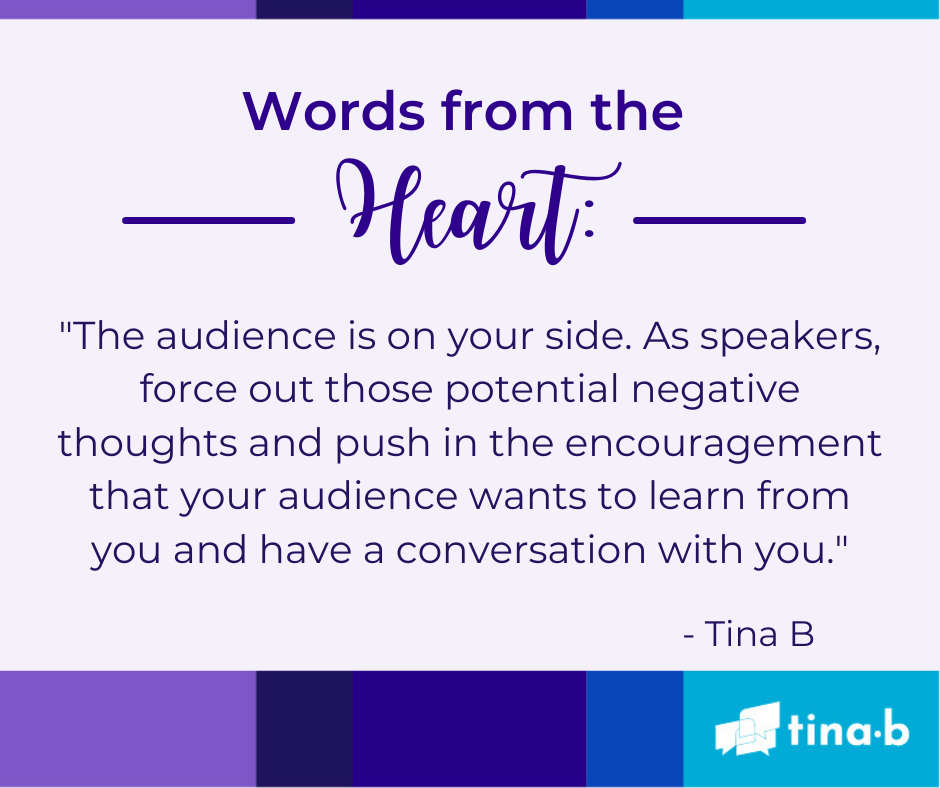Your Audience is on Your Side
How do you feel when you perform in front of an audience? Do you worry about all the thoughts flowing through their minds? Their judgements? The one-upping?
Are you simply freaking out for being in the spotlight?
We worry about what others think. We want to be liked, accepted, so much that it affects how we communicate with others. Negative thoughts can cripple you. These negative thoughts in our head result in how we feel about ourselves. That negative feeling then transfers to your audience.
What is the audience really thinking? The act of public speaking is a shared activity that involves interaction between speaker and audience. Scholars Sprague, Stuart, and Bodary explain, “Speakers do not give speeches to audiences; they jointly create meaning with audiences” Your audience can tell if you’re conversing with them or at them.
A few years ago, I witnessed a mind-boggling experience at a TEDx event. The speaker had a heavy topic, and her nerves took over. She stopped speaking. Her long pause became uncomfortable. The moderator came out and helped her recover her talk, handing her a notecard. The speaker repeated the previous sentence and continued for another minute, then lost her place again. On the verge of tears, the speaker stood defeated, expressing frustration on her face. The moderator appeared again to assist. This happened one more time before she finished her speech. Then, the most amazing thing happened: the audience erupted in applause. This speaker received a standing ovation for her presentation—the only one of the day.
What did this incident show me?
The audience is rooting for you. They want you to do well.
Instead of thinking, “Wow! She really stinks. Get off the stage.” The audience may have been thinking, “Wow! She’s so brave. I wish I could do that.”
This speaker shared a challenging subject and became vulnerable. The audience responded, “I see you. I hear you. I feel you.”
Being aware that the audience is more on your side and wishing you well can help with how you present your information.
It’s a game-changer.
By entering a speaking space with this in mind, it can help your present with poise.
Lessen the fear of being judged.
Feeling small.
As speakers, force out those potential negative thoughts and push in the encouragement that your audience wants to learn from you and have a conversation with you—just don’t go too long, but that’s subject for another time.



